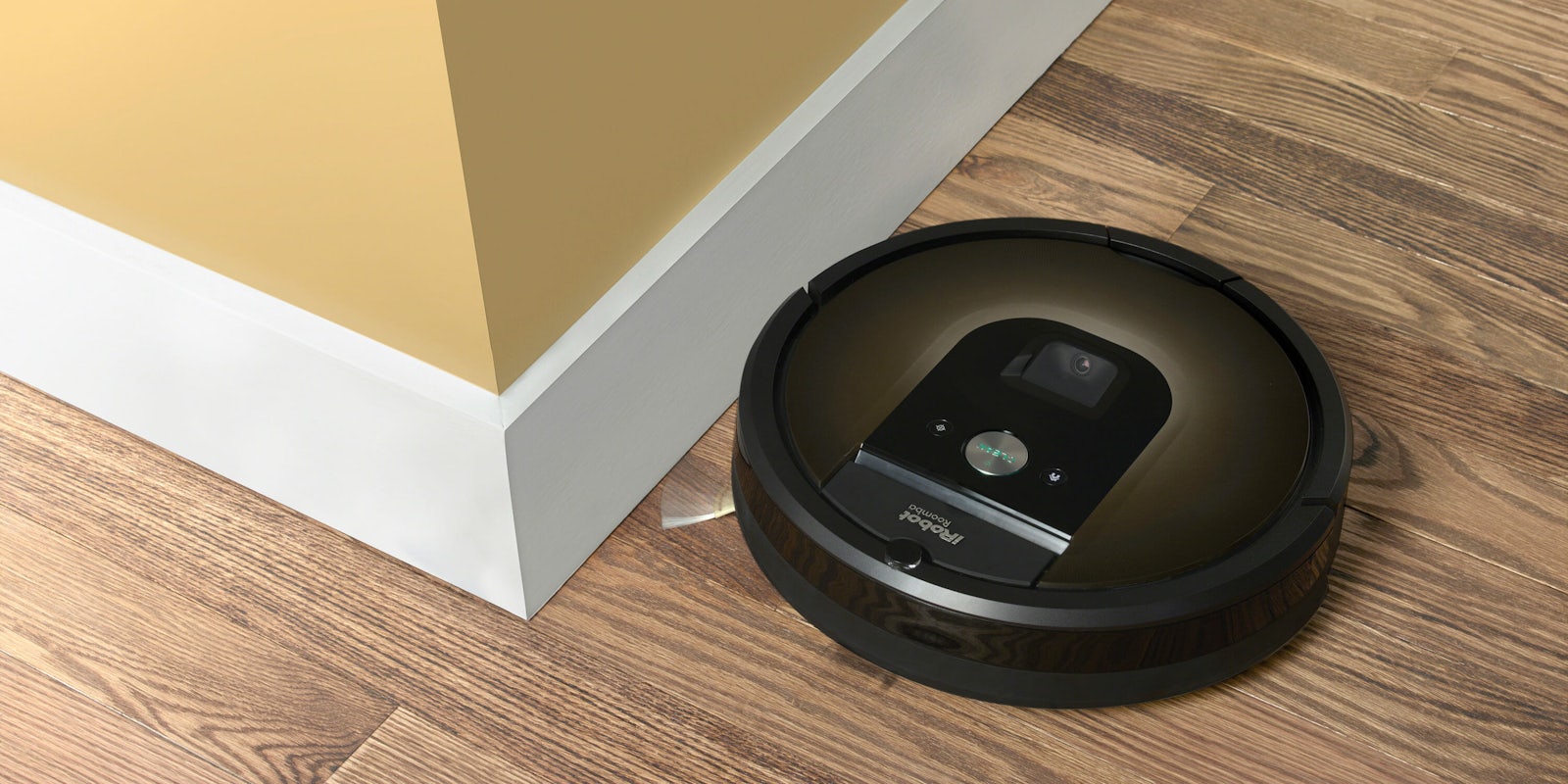iRobot‘s Roomba robots have been vacuuming up household dirt since 2002. At the same time, they’ve also been learning your home’s layout—the better for not bumping into your couch or getting stuck under the coffee table. Until now, that knowledge of your home has been private. In the future though, iRobot may sell that information to help smart home products get smarter.
“There’s an entire ecosystem of things and services that the smart home can deliver once you have a rich map of the home that the user has allowed to be shared,” iRobot CEO Colin Angle told the Guardian.
According to Reuters, iRobot could sell maps to Apple, Amazon, and/or Alphabet some time over the next few years. For iRobot, the move helps keep the company competitive and profitable as an abundance of cheaper cleaning bots hit the market. (A quick scan on Amazon will yield a variety of home cleaning robots, some as cheap as $30.)
Early Roomba robots only used IR or laser sensors to avoid obstacles in your abode. Beginning in 2015 though, high-end Roombas began to include a camera and other sensors to not just avoid objects, but build a map of your home. It’s this information that iRobot would sell—but only with customers’ permission.
Obviously, selling this kind of data comes with privacy repercussions. It’s your home, your floor plan, and your furniture layout. Do smart home product makers really need to know that much information about its users to improve performance? And what if it got into the wrong hands? A savvy thief could not only know where you live and whether you’re home, but also exactly how to navigate your home once inside.
Personally, I don’t mind sharing my data when it provides a clear benefit to me. At this point, however, there don’t seem to be too many strong reasons why sharing my floor plan with Amazon or Apple would help improve my life. (One possible exception, though, would be for perfecting speaker placement in a living room.) Between phones and fitness wearables, these companies could likely already surmise the size and layout of your home based on GPS and step data. Adding Roomba-based room mapping data would just provide an even clearer picture.
H/T The Guardian


